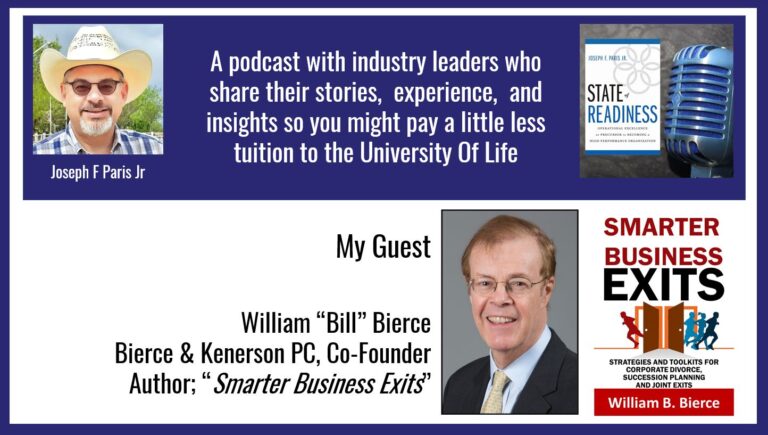Operational Excellence through Emotional Excellence
“Operational excellence is a philosophy of leadership, teamwork and problem solving resulting in continuous improvement throughout the organization by focusing on the needs of the customer, empowering employees, and optimizing existing activities in the process.” People are at the core of operational excellence. They are also at the core of your business. Should you then not focus with operational excellence on emotional excellence as well?
People will always do what they want; free will can be a beauty. If not immediately, they will after a while when they decide that their situation is not acceptable. This decision will be based on their values being disregarded by their environment or having to do things in ways that doesn’t come naturally to them. Rather than telling people that they should shape up or ship out, assess their natural thinking preferences and harness their innate gifts. By utilizing one’s natural way of thinking and teaming up people with shared values you are taking the first step in creating emotional excellence: people doing the tasks they are naturally good at in an environment that stimulates continuous performance improvement whilst staying in the flow.
Failing Emotional Excellence: Clash of the Titans
A near textbook example for every M&A deal on how not to do it: Alcatel – Lucent. Two big behemoths merging into an even bigger one. From a business perspective the merger was making sense. The products that each were offering were complementary and would strengthen the overall market position for both in turbulent times. However, as BusinessWeek put it in their article:
“The marriage of these iconic companies was never going to be easy. True, Lucent’s U.S. strength in the wireless business nicely complemented Alcatel’s global footprint and its prowess in fixed-line and broadband. But the cultures could hardly have been more different. One was hierarchical and centrally controlled, the other entrepreneurial and flexible.”
Though there is too much at stake to let a merger like this go bad, what could have been done to pro-actively identity this problem and take the necessary steps to guide both businesses through the change process?
Business Cultures
Reading the corporate values always create a wow-effect. Why? Because the corporate values are expected to do just that. Makes the company look pretty and responsible… But are these corporate values also the values that are actually lived and breathed by the organization? As I enjoy asking rhetorical questions, you already know the answer. The real values that exist in an organization are determined by management, by their personal values. Think about it: each person has his or her own set of personal values, as do you. Based upon your set of values you are deciding what is right and what is wrong for you. A big part of that decision-making also includes how you filter out information. These filters are your personal thinking preferences. So, the information you collect and process and the output you produce (speaking, body language) is always 100% correct based upon your filters. Hence, there is no absolute truth but only subjective opinions.
The set of corporate values are hardly ever the same as your personal values. The real values that are active within a company are therefore determined by the personal values of upper management. Based on their values, decisions are made on what is happening and what not. The mismatch between corporate values on paper and real-life values create an incongruent behavior within the organization. The more people a business employs, the greater the possibility that values are not aligned.
Aligning Values
What makes a team a team? What is it that makes us feel connected? We go out on team-building trips, sticking our heads deep down in the mud and pondering at the end of the trip how this has contributed to optimizing communication. The goal of these trips is about discovering what each other’s values are and how the other person processes information. By having shared values you start to feel connected. When you process information in similar fashion you get the impression the other person understands you better.
Let’s take an example of a value: flexibility. Let 10 people define flexibility and you will get 10 different answers. Ask each individual to further define who this value applies to (themselves, others, groups) and you will get an even bigger range of differences. Values are non-negotiable, you decide that these values are important for you and you will do everything to protect your core set of values. So, you will want to work with people who share at least some of your values. A team can only function effectively if they share values. But even then, you still have different definitions of what flexibility actually means. This is the part where negotiation starts: what are the criteria for calling something flexible? When a group has one definition of what flexibility means, you will find that this team becomes more productive and communicates better.
Thinking Preferences
Ever noticed when Jack and Paul are faced with an immediate problem how they solve it in different ways? Jack jumps right in, he is a real “get up and do it” type. Paul, on the other hand, assesses the problem and thinks about the implications of solving the problem at hand. Jack thinks of Paul as a nagger, Paul thinks Jack always jumps the gun. So where does this difference come from? Right, from your thinking preference. Thinking preferences are defined as how people will react and process information in a working environment. It is not a valued judgment, there is no right or wrong. This is just how someone prefers to react. The ways you prefer to react are also the ways in which you are naturally good at. Or in different words: if you could do the job the way that comes naturally to you, you would excel in your performance and be in your flow all the time. The job is perfectly matched to your neurology.
Another preference is comparison. Ask yourself now upon entering a room: do you notice what is the same as last time, or do you see what is different? This preference is particularly interesting for employers: the delta between these preferences can indicate how long a person will want to stay in the same function. Some people prefer to change every 1.5 years of roles, whilst others can easily stay up to 7 years in the same role. Knowing this, you can retain someone within the organization, safe guarding your investment and keep him actively engaged in the process.
Burn-out vs. Bore-out: Get in the Flow
Each person needs to be challenged in a unique way. This challenge is defined by getting assigned tasks that might ask a bit more of you then you currently think you can handle. Being pushed a bit is ok, up to a certain limit. Being pushed too little is also ok… again, to a certain limit. These limits are known as either a burn-out (too much) or a bore-out (too little). The ideal balance is called being in the flow. This is also the area in which people perform at their best. The general theory of motivation gives rise to three higher-order themes:
1. Autonomy vs. dependency: does a person’s work make him/her feel powerful and in control?
2. Security vs. absence of prospects: does a person feel he is well accommodated in his position, that he has found his niche?
3. Challenge vs. pointlessness: does a person feel challenged by his work; does it stimulate his faculties to the fullest?
Creating Emotional Excellence
Emotional excellence: aligning values in teams and people doing the role which matches their natural thinking preferences, be challenged in such a way that they are in their flow. But how to do this? By assessing the thinking preferences and values of individuals first.
This information enables you to start making beneficial changes to your organization immediately, and also how to motivate Jack and Paul so that they see the benefits of your proposed changed. Each thinking preference has its own unique way of being triggered to respond positively to a new input. It’s only finding the right words to establish communication between two parties, something different from two people talking. Knowing one’s thinking preferences not only informs you what the working environment should look like or the activities that best suit the person, but also what specific preferences could be trained to perform even better.
Every individual has their unique set of thinking preferences and values. The task every employer has is to harness these innate gifts and create an environment where people can excel in the things they are naturally good at. Being able to utilize and explain the differences between people via this model optimizes internal communication and creates understanding amongst employees. You can prevent culture clashes (like Alcatel-Lucent is experiencing), as well as great resources leaving your business because their individual needs are not met, thus reducing hiring costs. The benefits of emotional excellence will lead you to optimized team performance with the right people in the right place; it will improve internal communication and create a work environment that your employees will be proud to work in.
Utilizing emotional excellence in operational excellence creates the circumstances needed for leadership and teamwork through solving communication and alignment problems throughout the organization which results in optimized employee and customer experiences.
Emotional excellence requires an objective assessment that measures the subjective experience (job motivation), thinking preferences and values without passing a judgment (such as assigning colors or other labels to personality types).
For more information on how emotional excellence can ease your organizational challenges and reduce risk of change failure, contact me by phone or e-mail.
| Patrick Veenhoff – Multilingual Sales Performance Coach & Consultant LinkedIn: https://ch.linkedin.com/in/patrickveenhoff An accomplished, results-driven, multilingual Sales Coaching Professional with a proven track record of improving sales efforts through renewed focus on prospecting, customer relationship management, negotiations and selling strategies. Motivated professional who drives new business by establishing strong alliances with clients and industry leaders to increase market share. Cross-collaborate with multiple business units to achieve significant growth opportunities. Exceptional academic qualifications, including a Master of Science in General Management from Management Center Innsbruck (MCI). Constantly promote excellence and motivate employees toward top-level performance. |







